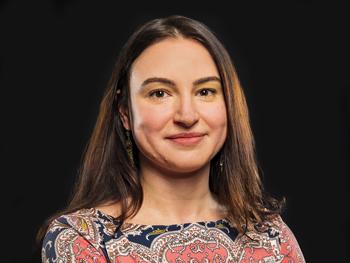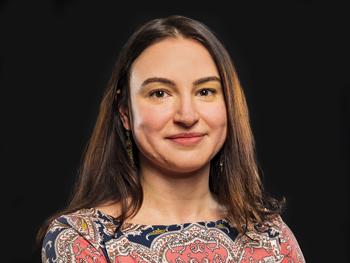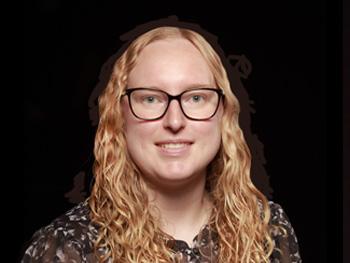
Olga Boukrina, PhD
Laboratory Director
 Our work is focused on understanding the neural mechanisms of stroke recovery to advance novel, beneficial treatments that enhance cognitive rehabilitation, with a special emphasis on the restoration of language and reading skills following stroke.
Our work is focused on understanding the neural mechanisms of stroke recovery to advance novel, beneficial treatments that enhance cognitive rehabilitation, with a special emphasis on the restoration of language and reading skills following stroke. 
Olga Boukrina, PhD, directs the Neurolinguistics and Brain Connectivity Laboratory part of the Center for Stroke Rehabilitation Research at Kessler Foundation. The goal of the Lab is to find ways to alleviate neurologic deficits caused by stroke – such as reading and language problems – through innovative research. Reading plays a crucial role in communication, personal growth, autonomy, and self-empowerment, and its loss after stroke can significantly impact an individual's well-being. Our team uses advanced neuroimaging techniques and neuropsychological assessments to pioneer innovative approaches to understand and alleviate reading difficulties following stroke.
The Lab is currently conducting a range of pilot and clinical studies, actively seeking participants. Some of these studies utilize experimental interventions that we have developed. For example, one study is employing real-time functional magnetic resonance imaging (fMRI) neurofeedback to assist participants in re-engaging the affected left hemisphere of the brain, which is critical for supporting all language functions including reading. In this study, participants learn self-regulation strategies, such as right-hand motor imagery, to modulate their brain activity. They receive real-time information about the efficacy of their efforts to activate specific brain regions, allowing them to adjust their mental imagery and increase activity in the left hemisphere. This neurobehavioral reading intervention, when applied within the first 10 weeks after a stroke in the left hemisphere, has the potential to promote post-stroke plasticity.
Another study integrates a well-established aphasia intervention modified specifically for reading with aerobic exercise. We are working on the premise that aerobic exercise (cycling) can improve brain circulation and, when implemented before a cognitive intervention, could enhance treatment outcomes by fostering treatment-induced plasticity.
National Institute on Deafness and Other Communication Disorders (NIDCD)
New Jersey Health Foundation
Mabel H. Flory Charitable Trust
Neurolinguistics and Brain Connectivity Lab Team
Neurolinguistics and Brain Connectivity Lab Team
-

Senior Research Scientist
-

